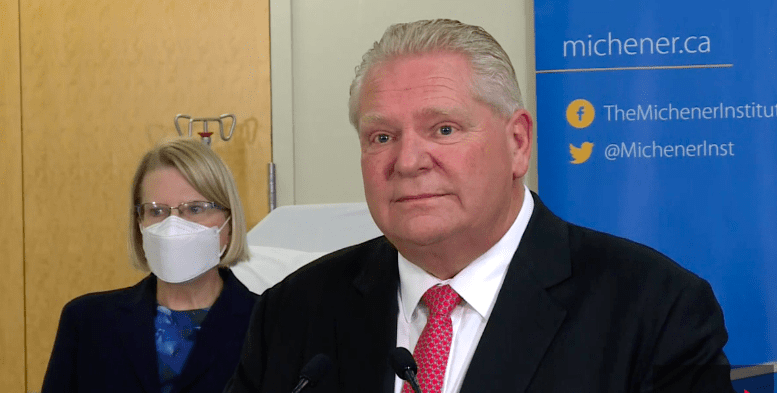Ontario’s newly passed Bill 23 is facing strong opposition from municipalities, organizations and residents saying it does not address affordability issues and poses a list of concerns.
“Bill 23 will cause us to lose more affordable rental housing even faster,” East York resident Kaila Hunte says. “There is more than enough room to build more housing in existing neighbourhoods. We don’t need to pave over wetlands to have housing.”
In an assessment by city officials, including chief planner Gregg Lintern, a list of key concerns are identified.
One of them is the slashing of developer fees, which are used by municipalities to fund services to support new homes, such as community centres, roads and sewage.
A letter to the mayor
Another concern is the diminishing of housing affordability. The proposed definition of “affordable” is tied to average market rent rather than income. It also reduces affordability period from 99 years to 25 years.
In a letter addressed to Mayor John Tory and city council, community organization Social Planning Toronto is calling out the serious long-lasting negative impacts of Bill 23 on housing affordability, saying it “will only exacerbate the current housing crisis by removing the rental replacement policy, limiting Inclusionary Zoning, and changing the definition of affordable housing.”
Bill 23, which passed on Nov. 28, aims to increase the supply of housing by reducing or eliminating developer fees. It has also removed the requirement for developers to replace rental units when demolishing existing buildings. This means developers can evict tenants and remove their right to return to their units at a similar rate.
“Once these affordable housing units are gone, those people would be displaced from their communities.” said Dania Majid, a lawyer at the Advocacy Centre for Tenants Ontario (ACTO).
“These loopholes are the driver to get rid of affordable housing and create more luxury housing. We’re going to lose affordable housing faster than we can build it,” she said.
ACTO has also submitted a letter highlighting the bill’s exclusive focus on supply, without measures to secure affordable housing or preserve existing affordable housing.
The bill was also criticized several MPPS.
“My colleague’s amendments and I were all voted down,” said Mary-Margaret McMahon, MPP for Beaches-East York. “That’s really disheartening.”
In a submission, the association of Municipalities Ontario (AMO) says that the bill would reduce municipalities resources by more than $5 billion over the next nine years.This includes a reduction of more than $400 million for community housing during the same period.
AMO’s submission also says that the bill will cost taxpayers either through high property taxes or service cuts.
Premier Doug Ford’s bill is aiming to build 1.5 million homes in Ontario over the next decade — 285,000 of them in Toronto, he says.

